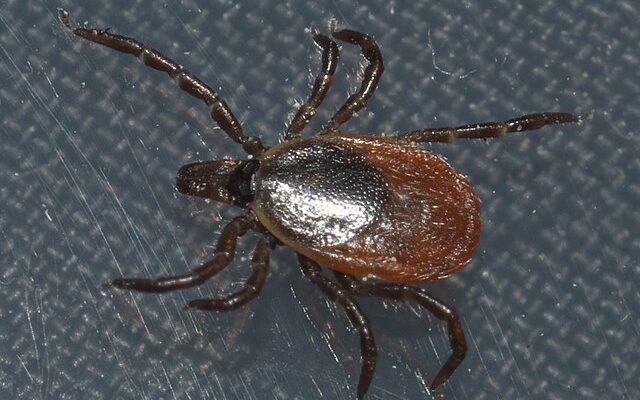
In case you were wondering how crazy the left has gotten these days, in a jarring new proposal that blurs the line between academic provocation and moral extremism, two bioethicists writing in the journal Bioethics have called for the intentional spread of a tickborne condition that causes a severe allergy to red meat.
Their aim? To reduce meat consumption by making people physically incapable of eating it.
Calling meat consumption “inherently unethical,” the authors suggest researchers should explore ways to amplify the spread of AGS while discouraging efforts to prevent or cure it. They insist the condition poses no health concerns as long as meat is avoided — an assertion critics say ignores the seriousness of allergic reactions and the medical burdens such a condition entails.
The National Review explains their crazy rationale:
Why would anyone want ticks to become more dangerous? Meat-eating is wrong, and so anything (apparently) that causes fewer of us to eat meat is “beneficent“:
1. Eating meat is morally wrong.
2. If (1), then eating meat makes people morally worse and makes the world a worse place.
3. So, people would be morally better and the world would be a less bad place if people didn’t eat meat.
4. If an act makes people morally better and makes the world a less bad place than it would otherwise be, then that act is morally obligatory. [Corollary of consequentialism]
5. Promoting tickborne AGS [a tickborne syndrome that causes a meat allergy] makes people morally better and makes the world a less bad place.
6. So, promoting tickborne AGS is morally obligatory.
Notice that this isn’t a claim about factory farming, but an all-inclusive argument that we have a positive duty not to consume animal flesh.
The condition, known as alpha-gal syndrome (AGS), is triggered by bites from ticks such as the lone star tick and can induce allergic reactions to mammalian meat. Symptoms range from hives and nausea to life-threatening anaphylaxis. But the authors argue that, far from being a disease, AGS should be viewed as a “moral bioenhancer” — a biological tool to enforce what they see as the ethical imperative of abstaining from meat.
The backlash was swift. Medical experts and ethicists alike condemned the idea as reckless, unethical, and absurdly impractical. Some warned it could undermine public trust in bioethics itself. “Weaponizing disease to impose a moral vision is not bioethics — it’s coercion in disguise,” one critic said.
The authors’ suggestion — that a debilitating allergy could be reframed as a moral improvement — has raised broader concerns about the credibility of speculative ethics in elite journals. Even those sympathetic to plant-based ethics found the proposal dystopian.
While the plan is unlikely to gain traction beyond the pages of an academic journal, its publication in a respected venue reflects the increasingly radical edges of contemporary leftwing debate, where moral philosophy sometimes strays into thought experiments untethered from public health, consent, or reality.
[Read More: Smoking Gun Implicates Hillary]











